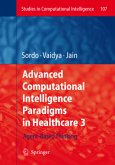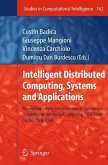The scope of this volume is to give to the reader a wide scenario of recent works characterized by a synergistic combination of Soft Computing area with recent trends of Distributed Artificial Intelligence and Ambient Int- ligence. We edited this book for two basic motivations: the emergence of computational intelligence as a mature and integrated science, and the power of the agent paradigm in realizing complex and distributed environments. Computational Intelligence has nowadays a mature formal theory and robust implementation experiences. Intelligent agents have shown their inner ability in acquiring data and knowledge from and performing appropriate de- sions through a functional relation that maps percepts to actions. Compu- tional Intelligence inside Agents are extremely helpful to support the designer of agent-based systems in treating with unknown or ill-defined envir- ments so to better handle knowledge representation and reasoning under these assumptions. The formulation of cooperative strategies, the linguistic aspects of the communication, the local decision versus the global kno- edge, the actions and plans as distributed viewpoints could be characterized by an incomplete knowledge and by a fragmentation of logical inter- tions, faced often by a non-monotonic reasoning. While building "smart" environments many challenges arises. The system needs to interact with its users in order to obtain feedback in a non-intrusive way. Explicit/implicit feedback is needed to take decisions in near-real time.








